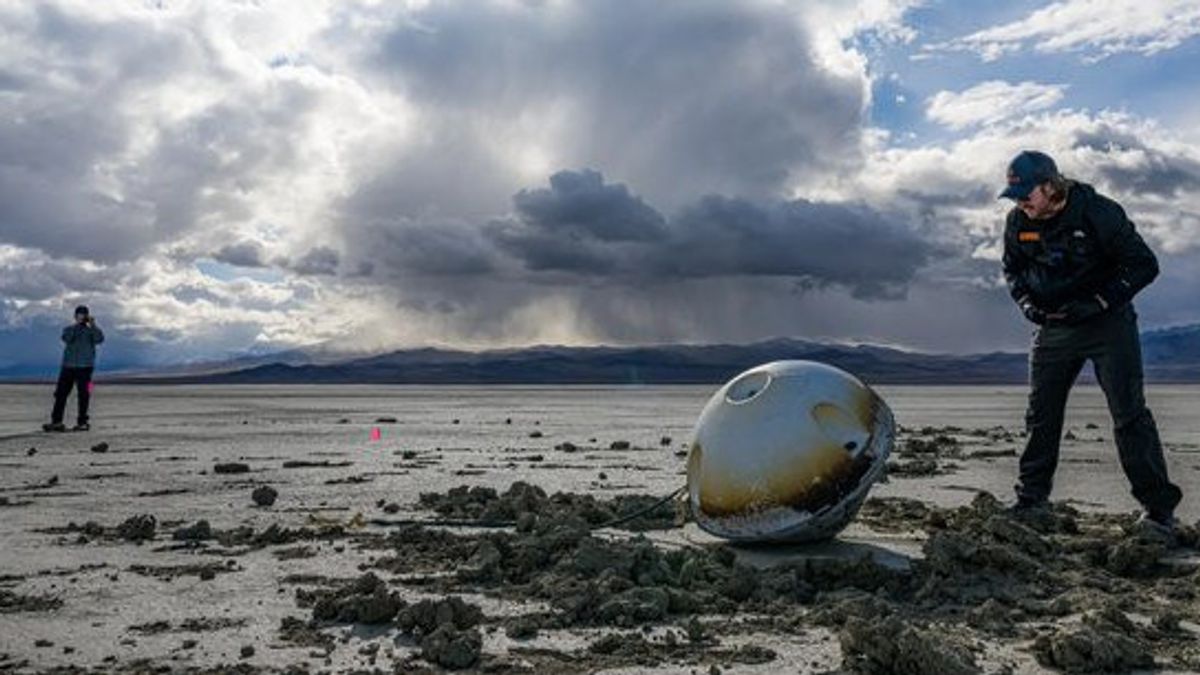JAKARTA - A space capsule carrying an unmanned mini pharmaceutical factory landed in the Utah desert in February 2024. The capsule carries newly created HIV drug crystals.
This orbital platform is the result of four years of hard work by Varda, a new California-based company. Varda wants to use the unique conditions of microgravity in low-Earth orbit to produce more pure and cheaper drugs.
Drug production on Earth sometimes produces unwanted molecular shapes due to Earth's gravitational pull. Microgravity in space is expected to overcome this problem.
Varda is not the only company competing to create drugs in space. Pharmaceutical giant Eli80 and several universities partnering with the National Lab on the International Space Station are also testing orbital platforms to produce various drugs, from cancer to drugs for Alzheimer's disease.
"The impact of microgravity seems to be very effective in obtaining pure crystalline material that has unique properties," biochemical professor Anne Wilson of Butler University told the Wall Street Journal this week.
Wilson, who has studied drug crystals in microgravity environments but is not affiliated with Varda, noted that microgravity can enhance molecular structures for a variety of special materials, not only in the medical field.
According to Varda's Chief Science Officer, Adrian Radocea, the company is currently analyzing the results of trials of the production of HIV drugs in space.
Varda is preparing for two more flights this year. The flight will be launched from June or July using a reusable SpaceX rocket.
President Varda, Delian Asparouhov, said his company had signed a contract with a pharmaceutical company for flights this year and three more flights scheduled for 2025. The names of several pharmaceutical companies will be announced before the launch of next summer.
In addition to the space program, Varda also has a program on Earth to help pharmaceutical companies determine whether their drugs can benefit from the complicated process of making drugs in space.
Recent research by two Varda researchers published in the journal Crystal Growth & Design uses centrifuges to track which crystal-structured drug molecules are most sensitive to gravitational forces.
The company's scientists call this a 'hypergravity crystallization platform'. They plan to offer this screening tool to potential pharmaceutical clients to see how their own drugs respond to gravity.
SEE ALSO:
Varda researchers, Kanjakha Pal and Radocea, used L-histidine essential amino acids in their tests. L-histdine has unique properties based on its shape and has been used to preserve organs before transplant surgery.
"The hypergravity experiment shows that gravity affects the crystallization process even when the solution is stirred up at high speed [in centrifugal]," Pal and Radocea wrote.
According to them, the results of this study show "that gravity is likely to play an important role in many processes of crystallization of small molecules."
"If we can observe this trend, it will be easier to convince the scientific audience," Radocea was quoted as saying by VOI from the Wall Street Journal.
Varda researchers hope to conduct further experiments to find out what other factors, such as cosmic radiation, can affect chemical reactions in low-Earth orbit.
"Ideally," said Varda co-founder and investor Josh Wolfe, "this will lower the cost of drugs very expensive and save lives."
The English, Chinese, Japanese, Arabic, and French versions are automatically generated by the AI. So there may still be inaccuracies in translating, please always see Indonesian as our main language. (system supported by DigitalSiber.id)














